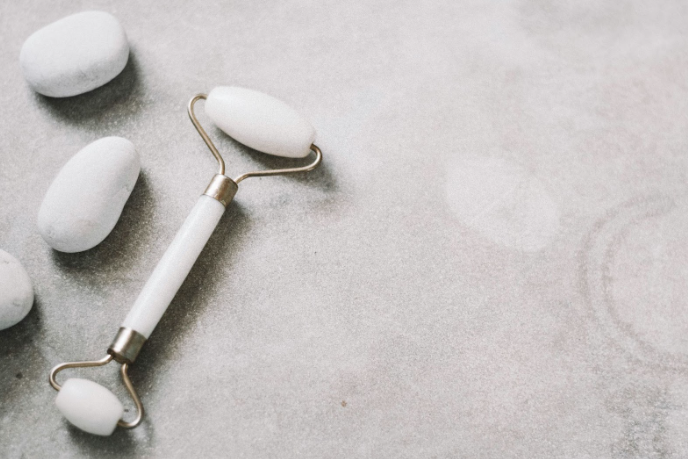Photo by Vladimir Srajber on Pexels
Long-distance travel can be thrilling, but it often takes a toll on our bodies and minds. From jet lag to dry skin, the challenges of staying fresh and healthy while on the move are real. As we navigate time zones and cramped spaces, personal care becomes more than just a routine—it’s essential for maintaining our well-being. But how do we strike the right balance between self-care and the demands of travel?
Thankfully, there’s a growing awareness of the importance of prioritizing personal care during extended trips. By adopting simple yet effective habits, we can ensure our journeys are as comfortable as they are memorable. Let’s explore how personal care and long-distance travel intersect to help us feel our best, no matter how far we roam.
Understanding The Intersection Of Personal Care And Long-Distance Travel
Long-distance travel poses unique challenges to maintaining consistent personal care routines. Prolonged hours in aircraft cabins with dry, recirculated air often dehydrate the skin, making moisturization crucial. Using products like hypochlorous acid face spray can help refresh and soothe skin, especially during extended flights.
Time zone changes disrupt regular schedules, affecting sleep and physical health. Prioritizing adequate rest and maintaining hydration aids in adjusting to new environments. Eating nutrient-rich foods and avoiding excessive caffeine also supports energy levels during extended travel.
For individuals requiring continuous medical care, tools like a stationary oxygen concentrator are indispensable. Boarding procedures and travel preparations may involve confirming airline policies to ensure safe and compliant use of medical devices during flights.
Effective personal care practices, such as frequent hand hygiene and using sanitizing wipes for surfaces, reduce exposure to germs in crowded transit hubs. These habits are vital for preventing illness during extended trips. Combining these strategies enhances comfort and well-being while navigating the demands of long-distance travel.
Challenges Of Maintaining Personal Care During Travel
Long-distance travel presents several barriers to maintaining personal care. Factors like disrupted routines, limited access to amenities, and environmental changes can compromise hygiene and health.
Common Issues Faced By Travelers
Jet lag disrupts sleep cycles, leaving travelers fatigued and affecting their overall self-care. Dehydration from dry, recirculated air in aircraft cabins causes skin dryness and exacerbates discomfort. Limited access to clean facilities in transit hinders basic hygiene practices like handwashing and oral care, increasing the risk of illness. Crowded transit areas, such as airports and train stations, expose us to higher levels of germs, making regular sanitization crucial. Packing constraints further limit access to essential personal care items, complicating efforts to maintain daily habits.
Impact Of Long-Distance Travel On Health And Hygiene
Extended travel challenges physiological and hygienic equilibrium. The dry air inside aircraft depletes skin moisture, emphasizing the need for products like hypochlorous acid face spray to hydrate and refresh skin. Time zone changes disrupt circadian rhythms, affecting metabolic processes and making restful sleep difficult. Physical inactivity during long flights contributes to issues like fatigue and muscle stiffness. Hygiene lapses in transit areas heighten infection risks. For those utilizing medical equipment like stationary oxygen concentrators, confirming adherence to airline policies becomes vital to ensure continuous care.
Essential Personal Care Tips For Long-Distance Travelers

Photo by Content Pixie on Unsplash
Long-distance travel can disrupt personal care routines, making targeted strategies essential. Proper skincare, oral hygiene, and hydration contribute significantly to feeling refreshed during extended trips.
Skincare During Travel
Aircraft cabins circulate dry air, which can dehydrate and irritate the skin. Applying a lightweight moisturizer before boarding creates a protective barrier. Sunscreen with SPF 30 or higher is crucial to shield the skin from UV exposure through cabin windows. Keeping a small, travel-friendly skincare kit ensures consistent care across changing climates. If layovers involve outdoor exposure, cleansing wipes and a portable facial mist help maintain skin health.
Maintaining Oral Hygiene On-The-Go
Long flights and irregular meals can impact oral hygiene, requiring proactive care. Packing a travel-sized toothbrush, toothpaste, and floss ensures regular cleaning during layovers. Chewing sugar-free gum stimulates saliva production, combating dry mouth caused by low cabin humidity. Using disposable toothbrush options simplifies quick cleaning when access to clean water is limited. Antibacterial mouthwash provides an additional layer of hygiene, reducing the risk of bacteria buildup. We suggest refreshing oral care practices every 6-8 hours on journeys exceeding a single flight duration.
Staying Fresh And Hydrated
Hydration combats fatigue and dryness during extended travel. Drinking 8-10 ounces of water every hour while in-transit replenishes lost fluids. Carrying a reusable water bottle simplifies access to clean water at airports. Herbal teas or electrolyte packets can supplement hydration needs without excess sugar. Travel-size deodorants, cleansing wipes, and a spare outfit in carry-on luggage help maintain freshness during layovers. For added nasal comfort in dry cabins, a saline nasal spray provides moisture, reducing irritation. Maintaining hydration and freshness ensures long-distance travelers feel comfortable throughout their trip.
Must-Have Personal Care Products For Travel
Effective personal care during long-distance travel simplifies maintaining hygiene, comfort, and well-being. Packing versatile, compact items ensures we’re prepared for any situation.
Compact And Travel-Friendly Essentials
Compact personal care products save space and comply with travel restrictions. Pack travel-sized toothpaste, a toothbrush with a cover, and deodorant sticks to maintain oral care and freshness. Include a small bottle of hand sanitizer and sanitizing wipes for quick hygiene fixes. A roll-on or stick-style sunscreen offers portability and protects against UV exposure. Pack a reusable water bottle to combat dehydration, particularly on long flights.
Multi-Purpose Products For Convenience
Multi-purpose items reduce the number of products in our bags. A tinted moisturizer with SPF acts as a quick solution for hydration and sun protection. Use a combination shampoo and body wash to streamline shower essentials. Lip balms with added SPF double as moisture barriers for lips and cuticles. Travel-size wipes serve multiple functions, like cleaning skin and surfaces. Portable all-in-one grooming kits with nail clippers, tweezers, and scissors add extra convenience.
How Technology Supports Personal Care For Travelers
Experts at the American Academy of Dermatology emphasize the need for hydration and skin protection while traveling, especially in changing climates.Technology plays a critical role in simplifying personal care during long-distance travel. Innovative tools and resources help travelers stay healthy, refreshed, and prepared for challenges like disrupted routines and hygiene concerns.
Smart Gadgets For Travel Hygiene
Compact and versatile gadgets enhance hygiene convenience during travel. Portable hand sanitizers with built-in UV light effectively sterilize surfaces, reducing exposure to germs in crowded areas. Electric travel toothbrushes ensure consistent oral hygiene, featuring compact designs and USB charging capabilities.
Wearable air purifiers protect against airborne particles and odors, creating a healthier personal environment. Noise-canceling headphones improve mental well-being by reducing stress during long flights. For skincare, portable humidifiers combat dryness in aircraft cabins. Hypochlorous acid face spray, a travel-friendly option, hydrates and soothes skin affected by dry or recirculated air. These tools deliver practical solutions for maintaining hygiene and comfort.
Mobile Apps And Resources For Travel Wellness
Digital tools aid physical and mental well-being while navigating unfamiliar environments. Sleep-tracking apps help adapt to time zones by suggesting optimal rest periods. Hydration reminder apps ensure travelers consume adequate water during and after flights.
Wellness apps offering guided meditations or breathing exercises reduce travel-related stress. Language translation apps ease communication, providing access to local personal care products and clean facilities in foreign locations. Medical resources, including flight-friendly stationary oxygen concentrator compatibility guides, assist those requiring continuous care. Leveraging these apps and resources simplifies maintaining overall travel wellness.







